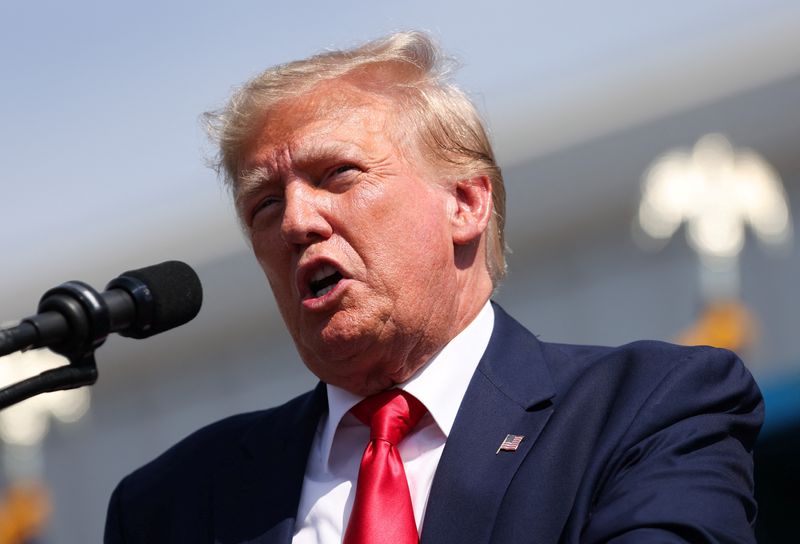By Andrew Goudsward
WASHINGTON (Reuters) - Donald Trump pushed back at U.S. prosecutors' request to curb some of his public statements about people involved in the federal court case accusing him of attempting to subvert the results of the 2020 presidential election.
The former U.S. president's lawyers sharply opposed the request from Special Counsel Jack Smith for a court order limiting Trump’s out-of-court statements about potential witnesses in the case and barring disparaging or intimidating remarks about the judge, prosecutors and potential jurors.
Trump’s defense team said in a court filing late on Monday that such restrictions would violate his free speech rights as he runs for president as the clear front-runner for the Republican nomination in 2024.
Trump had already publicly attacked Smith’s request, arguing it was an attempt to limit his criticism of the President Joe Biden, his likely opponent in the 2024 election.
"At bottom, the Proposed Gag Order is nothing more than an obvious attempt by the Biden Administration to unlawfully silence its most prominent political opponent," Trump's lawyers wrote in the filing.
Trump was indicted in August on four felony counts for allegedly attempting to intervene in the counting of votes and block the certification of the 2020 election, one of four criminal cases he faces. Trump has pleaded not guilty to all charges.
Smith’s office said in a court filing this month that Trump threatened to undermine public confidence in the case and influence potential jurors with “near daily” social media attacks on prosecutors, U.S. Judge Tanya Chutkan, who is presiding over the case, and residents of Washington, D.C. who will serve as jurors.

Prosecutors said Trump has a history of inspiring his supporters to harass and threaten people he singles out for public criticism.
Thousands of Trump supporters stormed the U.S. Capitol on Jan. 6, 2021, fighting with police and sending lawmakers fleeing for their lives, in a failed bid to overturn Trump's election defeat. Trump continues to make the false claim that his loss was the result of fraud.